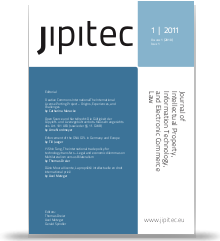Regulating Internet Hate: A Flying Pig?
Keywords:
Cybercrime Convention, Internet hate, freedom of expression, hate speech, regulationAbstract
This paper will assess the regulation of the internet in the ambit of hate speech expressed digitally through the internet. To do so, it will provide a definitional framework of hate speech, an overview of the internet’s role in the ambit of hate speech and consider the challenges in legally regulating online hate speech through a discussion of relevant case-law as well as the Additional Protocol to the Cybercrime Convention. The jurisprudential analysis will allow for a comparison of the stances adopted by the ECtHR and national courts of European countries on the one hand, and courts of the United States on the other, in the sphere under consideration. By looking at regional and national case-law and the initiative of the Council of Europe in the form of the Additional Protocol to the Cybercrime Convention, the paper seeks to provide an overview of the current state of affairs in the realm of regulating hate but also to demonstrate that such regulation, as occurring to date, is dysfunctional, predominantly due to the vast divergence of US-European approaches to the issues of free expression both on and off line. It is argued that due to the very nature of the internet as a borderless and global entity, this normative divergence cannot be overcome so long as traditional approaches to the issue of regulation continue to be taken. The paper’s analysis will emanate from the premise that there exists a need to strike an equitable balance between the freedom of expression on the one hand and the freedom from discrimination on the other.Published
2017-01-12
Issue
Section
Special Issue on Law and Governance in the Digital Era

